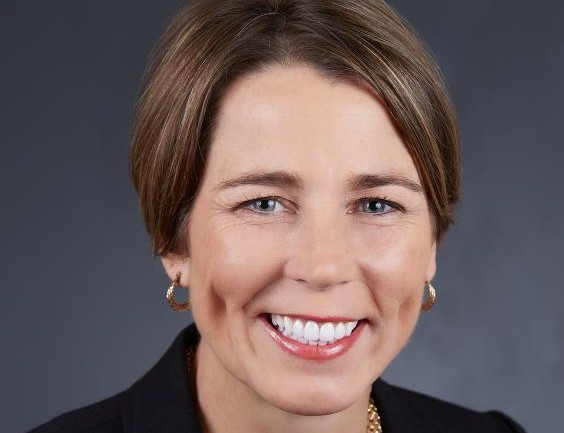latest
Governor Healey nominates Sarah Coughlin to Parole Board, recommends four new pardons

BOSTON – Governor Maura T. Healey today nominated Sarah Coughlin to the Massachusetts Parole Board. Coughlin is a Licensed Independent Clinical Social Worker and Licensed Alcohol and Drug Counselor who currently serves as the Director of Community Engagement and Partnerships at Mass General Brigham.
“Sarah Coughlin has a wide range of experience in many critical areas that will inform her work on the Parole Board, including violence prevention, restorative justice, diversion, re-entry, substance use disorder and mental health services, and community engagement,” said Governor Healey. “She shares our administration’s commitment to making our criminal justice system more just and equitable for all and will be an excellent addition to the Parole Board.”
“I’m honored that Governor Healey and Lieutenant Governor Driscoll have placed their faith in me to serve on the Parole Board. I’ve spent my career working to improve community health and promote healing by addressing the inequities and traumas that lead to and result from involvement in the carceral system,” said Sarah Coughlin. “I look forward to working with my colleagues on the Parole Board and the Healey-Driscoll Administration to make our communities safer and more just.”
Coughlin is a community organizer, social worker, therapist, trainer and consultant, and expert witness for state and federal courts. She has long been an advocate for effective mental health services, the use of science-based approaches to drug use and addiction, critical justice reform and equitable access to health care. As Director of Community Engagement and Partnerships at MGB she uses a collective impact model driven by community to address the social determinants of health and root causes of health disparities. She oversees collaborative efforts in Boston focused on youth violence prevention and provides access to survivor support and healing modalities in partnership with the Louis D. Brown Peace Institute.
Coughlin is also a Social Work Expert Vender for the Committee for Public Counsel Services, where she assists state and federal attorneys with sentencing reports, parole release plans, clinical assessments, substance use evaluations, and provides expert testimony at criminal trials, violation hearings, and child protection cases. She has a Bachelor of Social Work from Providence College and Master of Social Work from Boston College.
In addition to this nomination, Governor Healey also recommended four additional individuals to the Governor’s Council for pardons. Earlier this summer, she became the first Massachusetts Governor in more than 30 years to recommend pardons in her first elected year and secured pardons for seven individuals. Those recommended today are Joanne Booth, Murphy Smith, Evan Willey and Kenny Jean.
“When we recommended our first round of pardons earlier this year, I said that we were doing it because justice can’t wait. This second round reflects our continued commitment to that principle,” said Governor Healey. “These four individuals are deserving of pardons for offenses that they committed a long time ago, and they have since taken productive steps to improve their lives and give back to their communities. Our administration believes that clemency is a powerful tool to ensure that our criminal justice system is just and equitable.”
“These four individuals include a child care worker, a public servant, a marine and a committed volunteer. These pardons will make a significant impact on their lives and help them to truly move forward from crimes that they committed a long time ago,” said Lieutenant Governor Driscoll. “We are grateful to the Governor’s Council for acting quickly to approve our first round of pardons, and we look forward to work with closely with them to advance these recommendations as well.”
The Governor of Massachusetts has the power to grant executive clemency for offenses violating state law, including both pardons and commutations, with the advice and consent of the Massachusetts Governor’s Council. A pardon is a forgiveness of the offender’s underlying offense. The Advisory Board of Pardons first reviews all petitions for executive clemency and makes a recommendation to the Governor. The Governor then makes the ultimate determination on whether to proceed and grant the petition for executive clemency with the advice and consent of the Governor’s Council.
Those being recommended for pardons are:
Joanne Booth: Joanne was convicted of Assault and Battery on a Police Officer and Assault and Battery by Means of a Dangerous Weapon in 1979 when she was 18 years old. She was also convicted of Operating to Endanger in 1983. She was sentenced to probation in both cases. While on probation, she volunteered at a nursery school to complete her community service hours and developed a passion for the field. Joanne went on to graduate from community college and started her career in early childhood education. She was mostly recently running the pre-kindergarten program to prepare kids to start kindergarten and served as a mentor to teens who volunteered with the program. However, in 2021, after her longtime employer received a grant that required all employees to undergo a criminal background check, her employer was required to fire her more than 40 years after her offenses. Joanne has been married to her husband since 1985 and they have two kids, including a son who served as a United States Marine and a daughter who recently graduated from college.
Murphy Smith: Murphy was convicted of Assault in December 1988 when he was 24 or 25 years old and sentenced to one year of probation. At the time of his crime, he was in a mental health crisis, experiencing depression and self-harming. He went on to work as a nursing assistance, a Corrections Officer for the State of Maryland and most recently as a Personnel Specialist for the State of Maryland Spring Grove Hospital. Murphy says he has previously been rejected from jobs because of his criminal record, and he is concerned that if he ever lost his job, he would have difficulty getting a new one.
Evan Willey: Evan was convicted of Operation Under the Influence of Liquor in 2009 when he was 18 years old and sentenced to pay a $500 fine. At the time, he had plans to enter the Marine Corps after his high school graduation, but he was rejected due to his arrest. He wrote a letter asking for reconsideration and went on to serve in the United States Marine Corps from 2009 until he was honorably discharged after being wounded in Afghanistan in 2012. He later earned a Master’s Degree in Business Administration from Curry College. He’s been employed by the Department of Veteran’s Affairs for almost five years. He’s been married since 2010 and has three young children, coaches his sons’ flag football team and assists with his town’s basketball program.
Kenny Jean: Kenny was convicted of Armed Robbery in 2016 when he was 18 and sentenced to 2-3 years in prison. He says that at the time, he was homeless and in desperate need of money. As a teenager, he worked with a nonprofit called More Than Words, which provides jobs and training to system-involved youth. When he was released from custody, he continued to work with the organization. He earned his certificate of completion from South Coast Education Collaborative, completed the New England Culinary Arts Training Program and joined a church.






You must be logged in to post a comment Login